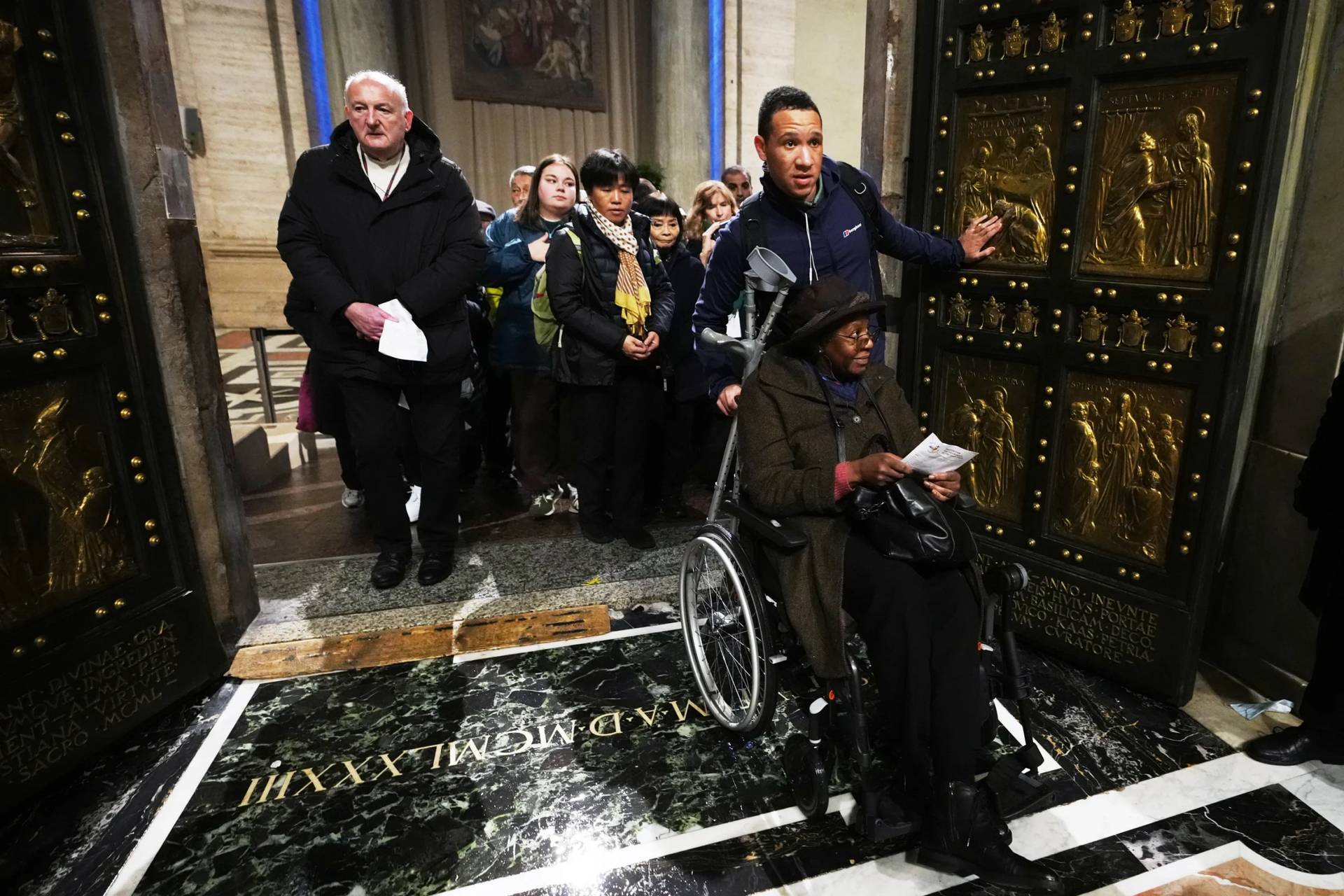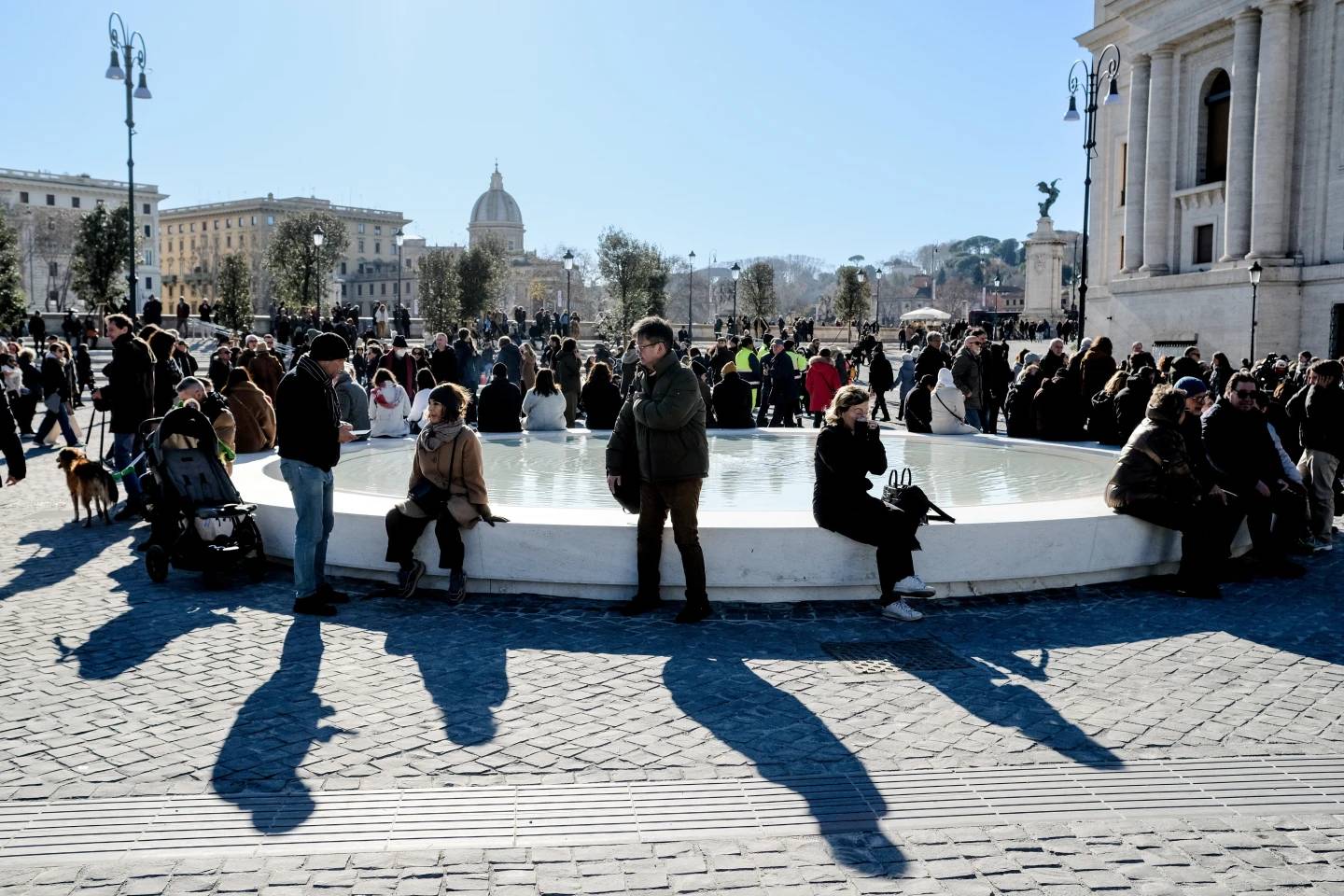ROME – Honoring cardinals and other bishops who died in 2018, Pope Francis Saturday said attaining heaven means letting go of worldly affairs, looking to others and serving them instead of focusing on one’s own appearance.
“Everything that the world runs after and then parades – honor, power, appearances, glory – passes away and leaves nothing behind,” the pope said Nov. 3, adding that detachment from worldly appearances “is essential to our preparation for heaven.”
“We need to say no to the ‘cosmetic culture’ that tells us to worry about how we look,” he said. “Instead of our outward appearance that passes away, we should purify and keep custody of our heart, our inner self, which is precious in the eyes of God.”
As he does every year, Francis offered Mass in Saint Peter’s Basilica for the cardinals and bishops who passed away in 2018, focusing his homily on the day’s Gospel reading from Matthew, in which bridesmaids go out to meet the bridegroom, but some miss his arrival because they forget to bring extra oil with them and must go purchase it at the last minute.
For Francis, the narrative is one that illustrates both the need to go out of oneself like the bridesmaids did, particularly those who have consecrated their lives to God, and the opportunity to grow in love, which he said ought to be the goal of one’s earthly pilgrimage.
“Every day of our lives is a preparation for the wedding banquet, a great period of betrothal,” he said, noting that according to the Gospel, the most important ingredient for this to happen is nearly invisible to the eye.
Drawing on the Gospel passage as an analogy, the pope said the most essential part of their time waiting for the bridegroom is not their gowns or their lamps, but the oil they keep in their jars.
A defining characteristic of oil, Francis said, is that “it is not impressive. It remains hidden; it does not appear, yet without it there is no light. What does this suggest to us? That in the Lord’s eyes what matters is not appearances but the heart.”
What is important is “not to be flashy but essential,” he said, noting that another aspect of oil is that it is not meant to sit in a jar, but is created in order “to be consumed.”
“Our lives are like that: they radiate light only if they are consumed, if they spend themselves in service. The secret to live is to live to serve,” Francis said, adding that the meaning of life is found not in what a person gains, but in how much they give to others and to God, who calls and seeks a response of love and self-giving.
To serve others comes at a cost since it requires spending our time and energy, he said, stressing that in a life of ministry, “those who do not live to serve do not deserve to live. Those who hold on too tightly to their lives will lose them.”
Francis said preparation is also key, as the Gospel reading illustrates. Like the oil the women bought and carried, love must also be kept in reserve, he said.
Love, he said, “is certainly spontaneous, but it is not impromptu. It was precisely by their lack of preparation that the bridesmaids excluded from the wedding banquet showed their foolishness.”
“Now is the time for preparation: here and now, day by day, love has to be stored up and fostered” so the flame does not go out, the pope said, and warned against the temptation “to sink into a life without love, which ends up being like an empty vase, a snuffed lamp.”
“If we do not invest in love, life will stifle it,” he said, adding that those who live a life of service “cannot be content with a sedentary, flat and humdrum life that plods on without enthusiasm, seeking petty satisfactions and pursuing fleeting rewards. A dreary and predictable life, content to carry out its duties without giving of itself, is unworthy of the Bridegroom.”
Francis closed by praying for the cardinals and bishops who have passed away, and asking for the intercession of all those who lived “unassuming lives,” but who everyday prepared to meet the Lord.
“Following the example of these witnesses, who praise God and are all around us in great numbers, let us not be content with a quick glance at this day and nothing else,” he said. “Instead, let us desire to look farther ahead, to the wedding banquet that awaits us.”















